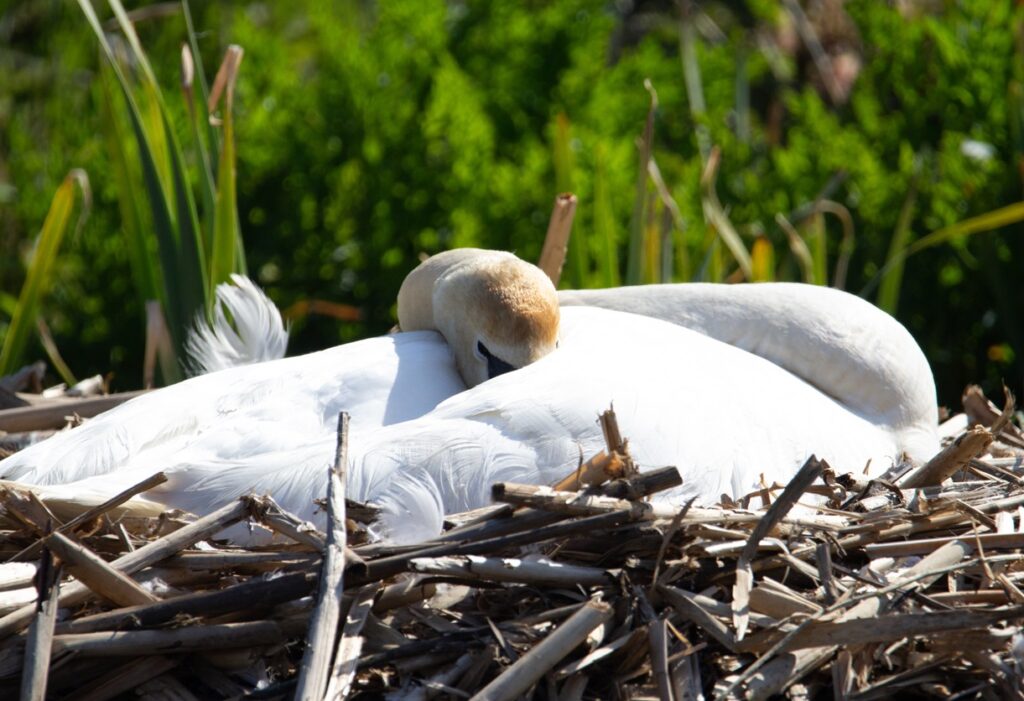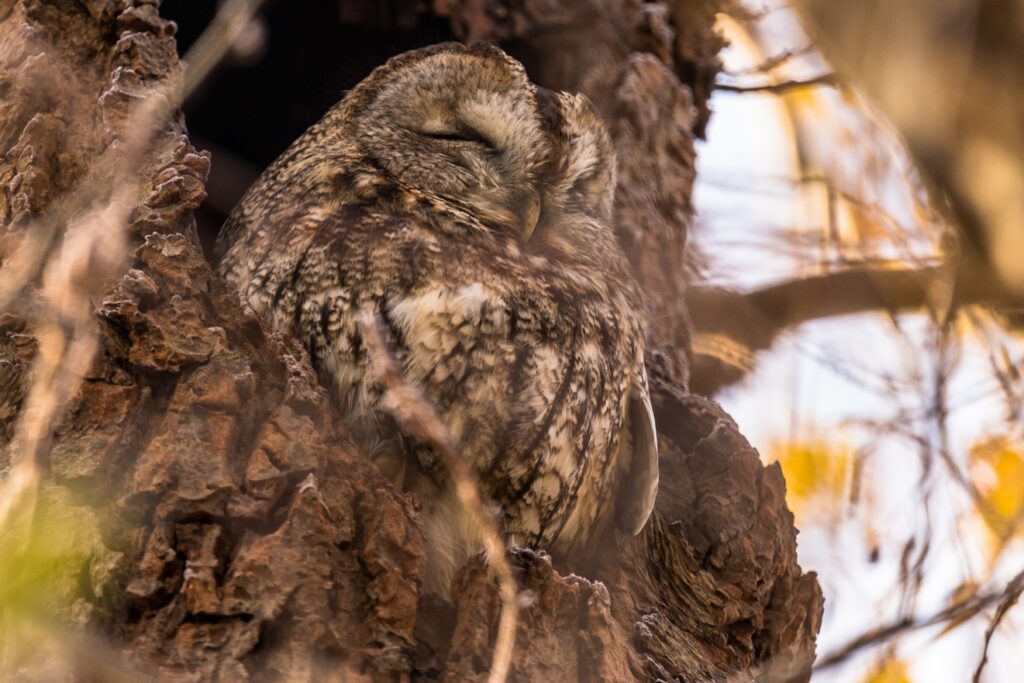Every avid bird watcher has likely seen a bird’s nest with babies inside of it with an adult bird frequently flying in to check on them. You may have wondered how something so small can accommodate a family of birds when they sleep.
While it may seem the most advantageous for a mother to sleep in the nest with her babies to keep them safe, it can be difficult to feasibly do. Yes, mother birds sleep in the nest with babies but only at specific times in their development.
This article will discuss those times as well as where mother birds sleep if not in the nest.

When do Mother Birds Sleep in the Nest?
One of the most common times that you may find a mother bird sleeping in a nest is when the babies are still in their eggs. When baby birds are still in eggs, their mother must keep them incubated and warm to help their development process until they are ready to hatch. While they sometimes take breaks from sitting on their nests during the day, it is vital to keep them warm during the coolness of the night.
When eggs are first hatched, baby birds rely on their moms for both warmth and protection. Without feathers, baby birds are incapable of regulating their body heat, which means they will get cold very easily. The mothers cover them with a brood patch (the lower part of a mother bird’s belly that normally has no feathers). Once they begin developing feathers of their own, the mother can leave them more frequently.
In the colder climates of the world where temperatures can dip below freezing, mother birds have been documented sleeping with their babies longer than normal. When the temperature dips below freezing (especially at night), baby birds are at an increased risk of losing their lives even if they have developed feathers. With mothers to keep them warm, the babies should be able to make it through the cold temperatures.
How Long are Mother Birds Sleeping in Their Nests?
This question is a little more difficult to answer as it varies from bird to bird. Most birds incubate their eggs anywhere from ten days to four weeks. The birds that have eggs that hatch sooner tend to have babies that are not self-sustaining for a while. This means the mother must then keep the baby birds warm by continuing to sit on the nest.
Once the babies are able to sustain their body temperature by themselves, the mother bird doesn’t spend much time in the nest. Since many birds lay their eggs in the spring when the weather can still dip below freezing, that would be the only exception. You will likely see a mother bird on her nest for a few weeks then it will just be the babies in the nest.

Where do Mother Birds Sleep when They Leave the Nest?
Once their eggs are able to take care of themselves, mother birds will seek shelter in nearby bushes or trees to sleep for the night. Though it might seem better to stay on the nest to provide protection for the baby birds, mother birds can provide as much protection in a nearby roosting place. In the first week of their lives, baby birds need a lot of attention. During this time, mother birds will roost in the same tree and only leave to eat.
Contrary to popular belief, birds don’t tend to make nests to sleep in when they are not incubating eggs. If the nest is made in the hollow of a tree, adult birds may use it as a roosting spot in the winter but otherwise will not sleep in a nest. Many find roosting spots for the night this may be anything from dense foliage to man-made structures to branches high up in trees.
To sleep, many bird species will huddle together to keep warm and protect one another from predators. When sleeping on a branch or something that they have to hold onto, birds will lock their claws so they don’t slip or fall off while asleep. Many birds also puff up their feathers and tuck their beaks into their feathers to keep warm at night.
If the weather is inclement (typically including heavy rain or hail), birds surprisingly roost in similar places. While taking extra steps to make sure that their roosting spot is secure and will protect them from the conditions, birds sleep happily in a bush or a tree even in bad weather.
